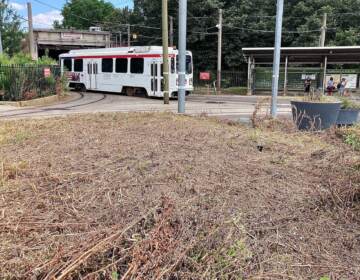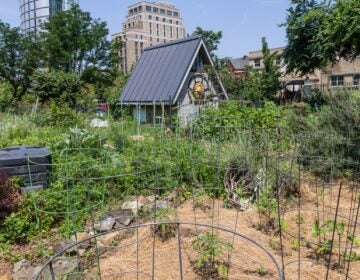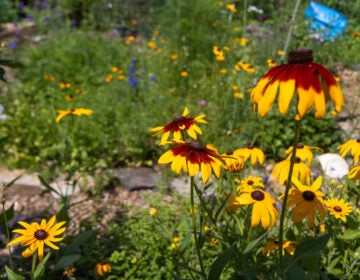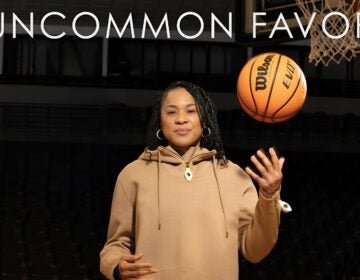A North Philadelphia grower is planting an orchard on a vacant lot
The fledgling farm is growing quietly on a piece of city-owned land, part of a grassroots movement that seeks to turn vacant lots into green spaces.
Listen 4:04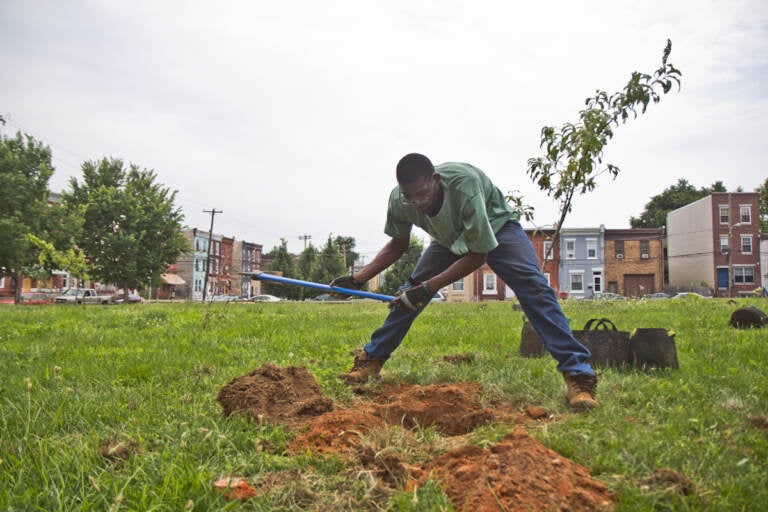
Garrison Hines plants fruit trees at a lot on the 1900 block of Norris Street in Philadelphia. (Kimberly Paynter/WHYY)
Garrison Hines doesn’t hurry. He knows there’s a lot of physical labor ahead of him, so there’s no need to rush. Dotted across a vacant lot at 19th and Norris streets in North Philadelphia are a dozen trees. By the end of the day, all 12 will be in the ground — the beginning of North Roots Orchard and Farm.
The fledgling farm is growing quietly on a piece of city-owned land that has been empty all of Hines’ life. The Philadelphia Orchard Project alum, 25, broke ground on North Roots in June. It started with four trees and two raised beds. Now, there are 16 trees on the lot and a plan for more as Hines works to formally acquire the land from the city. One of an increasingly visible community of growers seeking title to city land, Hines’ story reflects the struggle Philadelphia faces as it seeks to balance a booming market for housing with a community-based call for more green spaces in neighborhoods where trees and open space are in short supply.
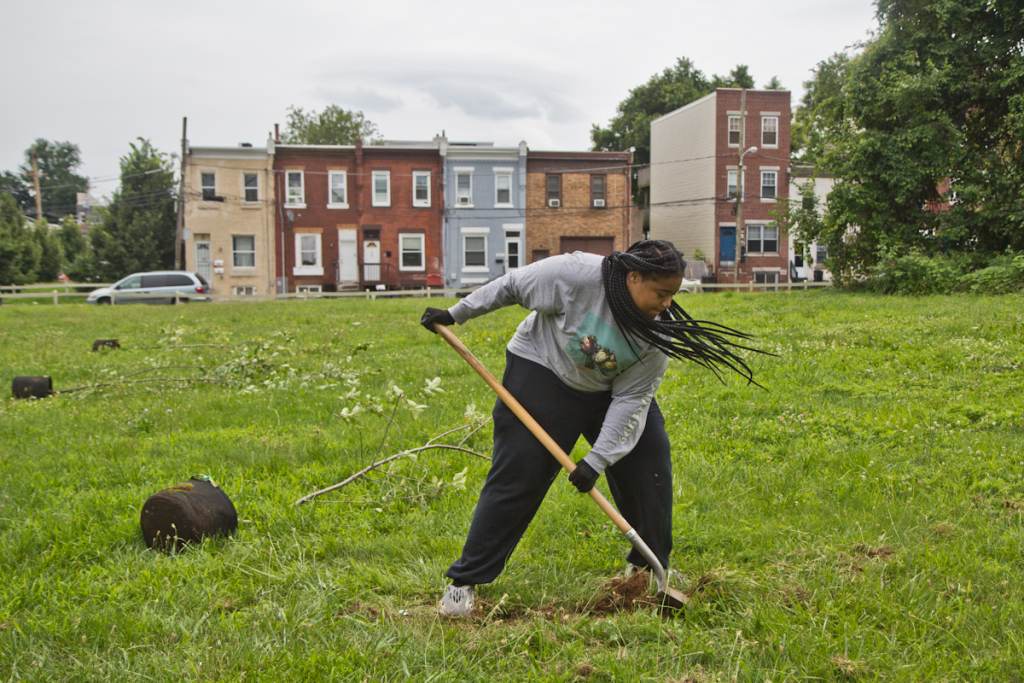
In his case, Hines knew the land before he had a vision for it. He walked by the lot often as a child on the way to his grandmother’s house and to the playground.
“I used to take this route as a kid daily to go to her house,” he said. “We played at the playground right around the corner at the King Center.”
The empty tract began to take on new possibilities after he began working with the nonprofit Orchard Project.
“As I got older, I started to learn about urban agriculture and some things that we could do with vacant lots,” Hines recalled. “I just figured that this would be a perfect location, since it has been empty for the past 20 years.”
On the June day that he planted the 12 trees, a donation from Tree Philly, three young boys circled the block several times, curious about the new addition to the neighborhood. Hines welcomed their interest.
“They didn’t know anything about this stuff,” he said “But because they see us out here doing it, they stopped to ask, ‘Oh, what’s going on here?’ And that’s one of the reasons why I’m out here.”
Hines believes the orchard could be a force for good. He said he remembers being a kid looking for something to do in the neighborhood and wants to offer the next generation something he didn’t have.
“For me, if I would have seen somebody doing this kind of stuff, maybe I would have got on to it earlier, and would have been able to prevent some of the negative things that I’ve done in my life,” he said.
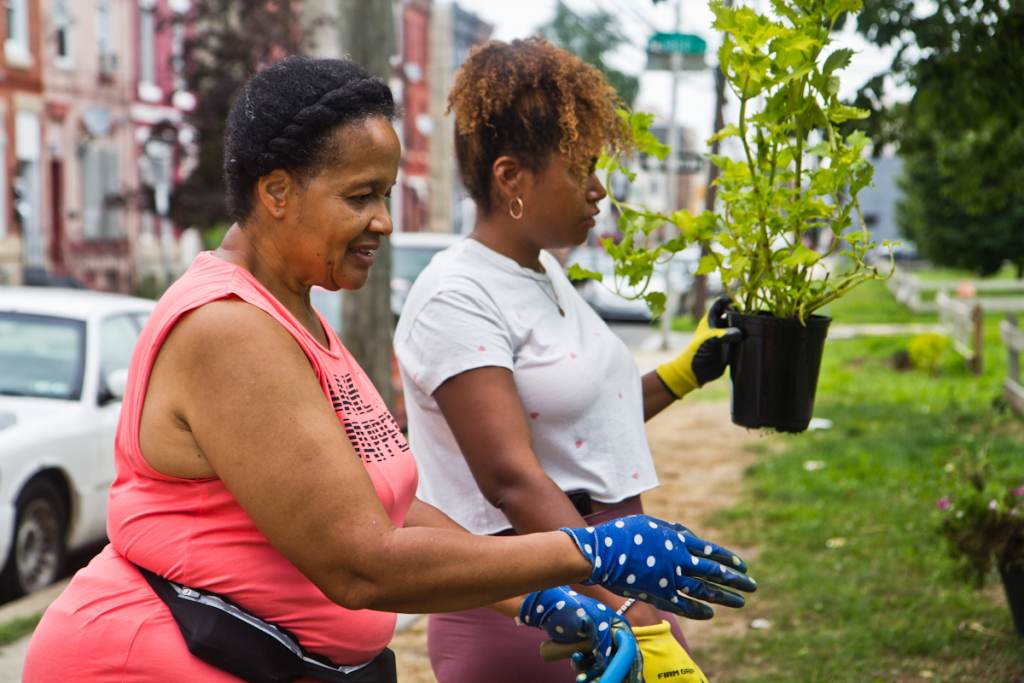
Ruth Birchett is the founder of the Heritage Community Development Corp., a 31-year-old community-based nonprofit. Everyone calls her Miss Ruth. She met Garrison Hines at a class about tree care at the Pennsylvania Horticultural Society, and they became friends.
“I’m so happy as an elder that I get the opportunity to mentor Garrison Hines with his North Roots idea,” Miss Ruth said. “We have lost so much in this community, but we can keep the legacy of family and restore a sense of community and family here.”
In fact, Miss Ruth said, North Roots is not the first garden on this property. “There used to be a very large community garden right at the corner of 20th and Norris, and the elders, many of whom migrated from the South, were all hands-on,” Miss Ruth remembered. The neighbors are excited to see fruit grow again in the community, a food desert lacking access to fresh produce.
For Hines, the hardest part is navigating city government. The orchard sits across 13 discrete city-owned lots, which means he must obtain rights 13 times over. He submitted expressions of interest to the city and met with Angel Rodriguez, who leads the Philadelphia Land Bank, a clearinghouse for city-owned property, and a staffer for City Council President Darrell L. Clarke, whose district includes the land.
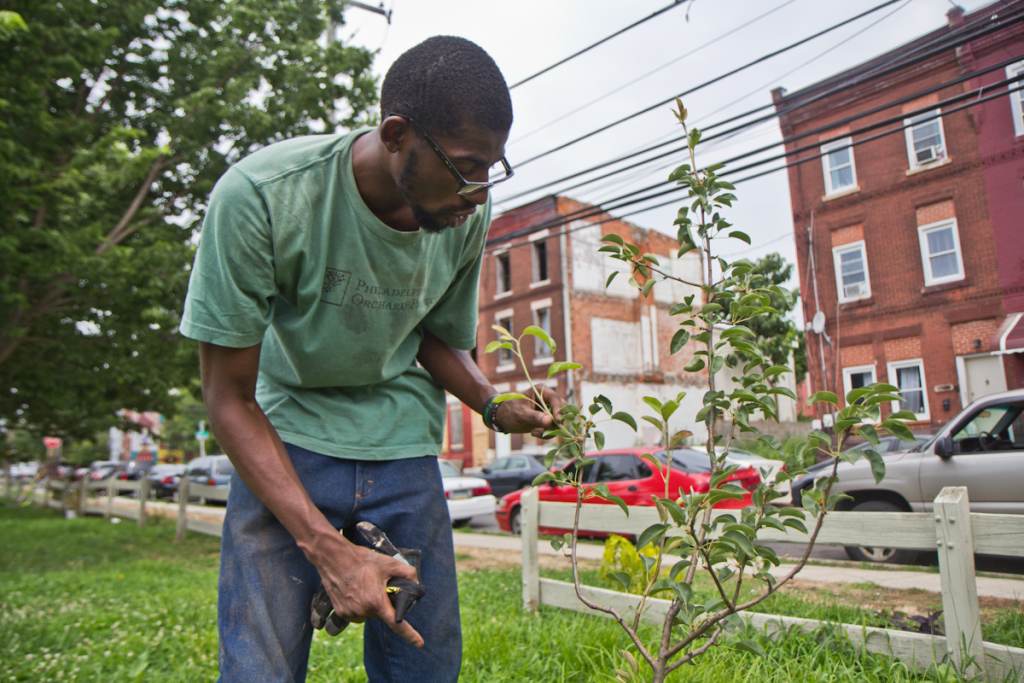
Both seemed supportive, Hines said. But then COVID shutdowns hit the city, and the Philadelphia Housing Development Corp., which operates the Land Bank, revamped its application system, which means those 13 EOIs are now moot. It turns out making Philadelphia better block by block is not for the easily defeated. Even so, Hines kept going, fundraising and planting.
“The last words that [Clarke’s office] left us with were ‘the best thing we could do was to start,’” he said.
And that’s what he did.

Subscribe to PlanPhilly
WHYY is your source for fact-based, in-depth journalism and information. As a nonprofit organization, we rely on financial support from readers like you. Please give today.



